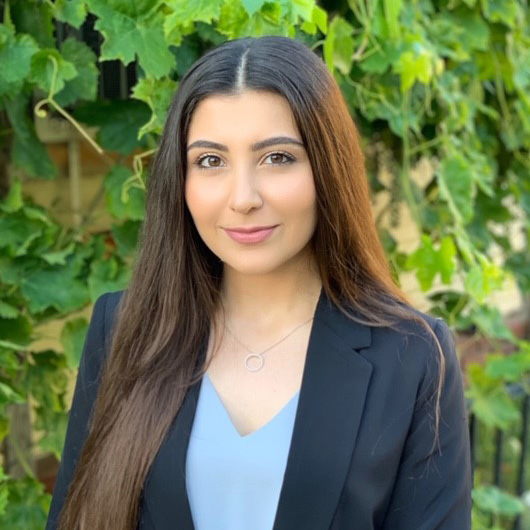
With student loan debt being at crisis level proportions, cost-of-living on the rise, and the countless expenses associated with moving to and attending school, the Colorado Legal Group Fund was created by Managing Attorney David Crum to give back to students who have decided to start their legal education. To help support the next generation of leaders in law and help grow the future in the legal society, a $1,000 scholarship was offered to applicants who could answer the question, “Why are you applying to law school and why do you want to pursue a career in the legal profession?”
 With over 50 applications from students set to attend Yale, Georgetown, Boston College, Michigan, Northwestern, and many other prestigious universities, one applicant stood above the rest. Colorado Legal Group is proud to announce Lili Mikaelian as the winner of the 2019 Colorado Legal Group Fund. Growing up in Glendale, California, Lili attended UC San Diego for her undergraduate degree where she majored in Psychology and minored in Business and Ethnic Studies. She has decided to continue her education at UC Hastings College of the Law with the hopes of going into immigration law. We wish Lili all the best in her future endeavors.
With over 50 applications from students set to attend Yale, Georgetown, Boston College, Michigan, Northwestern, and many other prestigious universities, one applicant stood above the rest. Colorado Legal Group is proud to announce Lili Mikaelian as the winner of the 2019 Colorado Legal Group Fund. Growing up in Glendale, California, Lili attended UC San Diego for her undergraduate degree where she majored in Psychology and minored in Business and Ethnic Studies. She has decided to continue her education at UC Hastings College of the Law with the hopes of going into immigration law. We wish Lili all the best in her future endeavors.
Read Lili’s Colorado Legal Group Fund Winning Essay
My mother came home, handing me a stack of mail to sort through as she always did. I rifled through the bills and pizza ads when I came across a letter addressed to my grandmother from the United States Citizenship and Immigration Services. Her first immigration case had gone horribly wrong because she couldn’t afford an attorney and received poor advice from someone who exploited her. After many years, she found the courage to re-apply for residency knowing that deportation was still a possibility. Since then, every update served my family a pang of anxiety.
I opened the letter, scanning every detail. Due to language barriers, I learned to quickly process news and deliver both the good and bad. My heart sank—my grandmother’s hearing had been rescheduled for the following year. As I explained this to my family, they had many questions and I had no answers. I couldn’t help but feel helpless.
As the only natural-born citizen in my family, I’ve always occupied a strange space in the world of immigration. I never had to worry about deportation, but constantly stood to lose family members as they made their way through the process. I’ve helped navigate the intricacies of filling out paperwork, speaking with lawyers, and preparing for interviews since I was a teenager. For a long time, the idea of losing anyone made it difficult to accept these duties, but the more exposure I received to the complex issues that my family faced, the more this feeling of helplessness evolved into a fierce passion to advocate for those beyond my family.
I started volunteering at a small immigration firm assisting with translations and preparing case files for non-English speaking clients. I’ve met countless families, many of whom were misled just like my grandmother. Not only have I been a resource for them and helped narrow the knowledge gaps that exist due to systemic socioeconomic and structural barriers, but I’ve seen the positive impacts of lending my voice to those that need it most. One of these clients was a woman named Mary, who was escaping her abusive husband with her daughter. The first time we met, she was convinced that her case would end in heartache and financial burden. She didn’t have anyone to guide her, and not understanding English made everything more confusing. I felt a connection with her because of my own family’s immigration struggle, but also saw myself in her daughter. I knew she’d grow up facing similar challenges, worrying about losing her mother or leaving the only country she’d ever known. Our shared language and ability to communicate ultimately made her more confident to take on the immigration process.
People like Mary and my grandmother are the reason that I want to be an attorney. Starting over in a new country with a new language and new culture is a monumental task. I want to ease that struggle by providing hope and safety to those that have risked everything for a better life.
